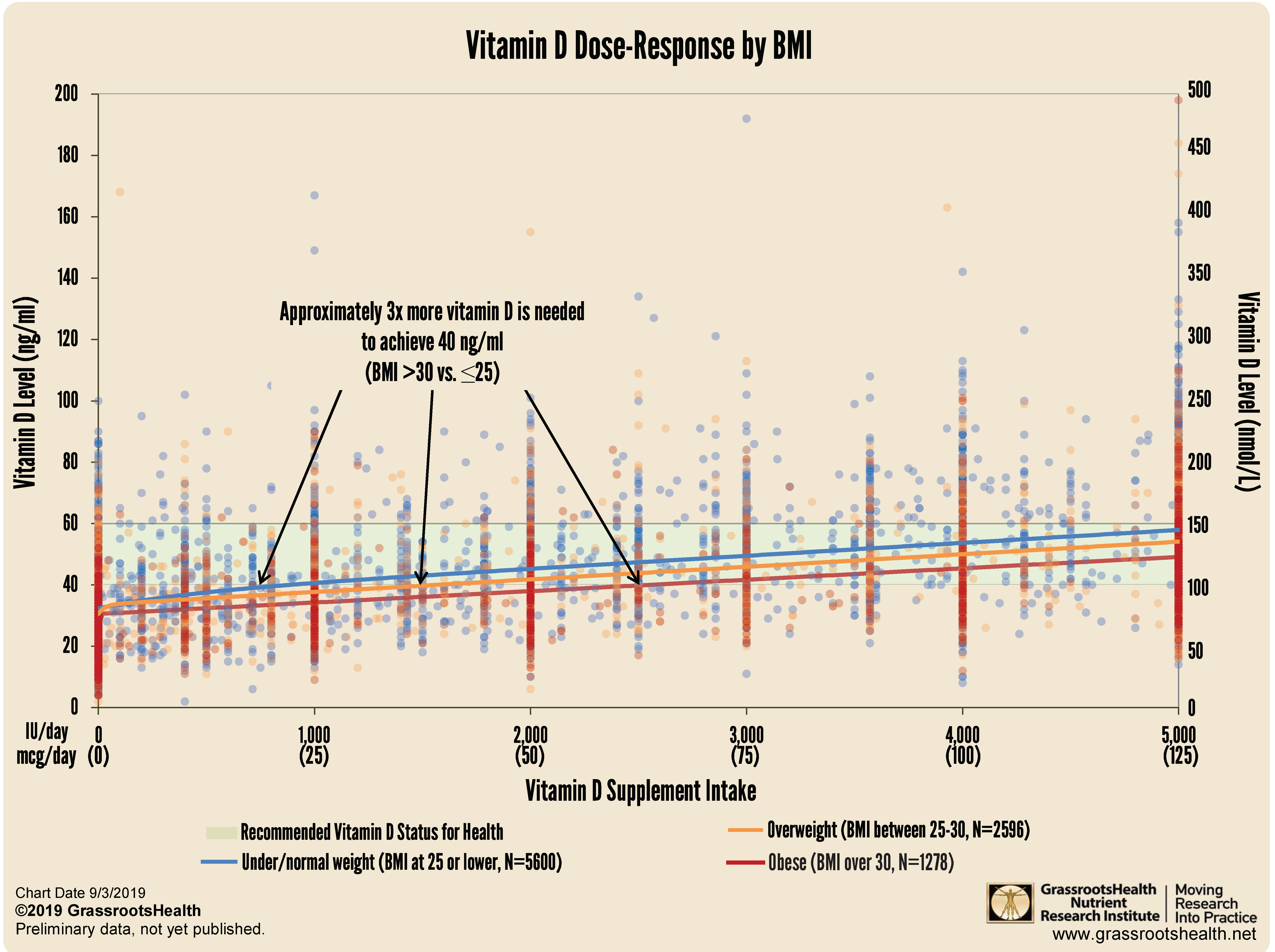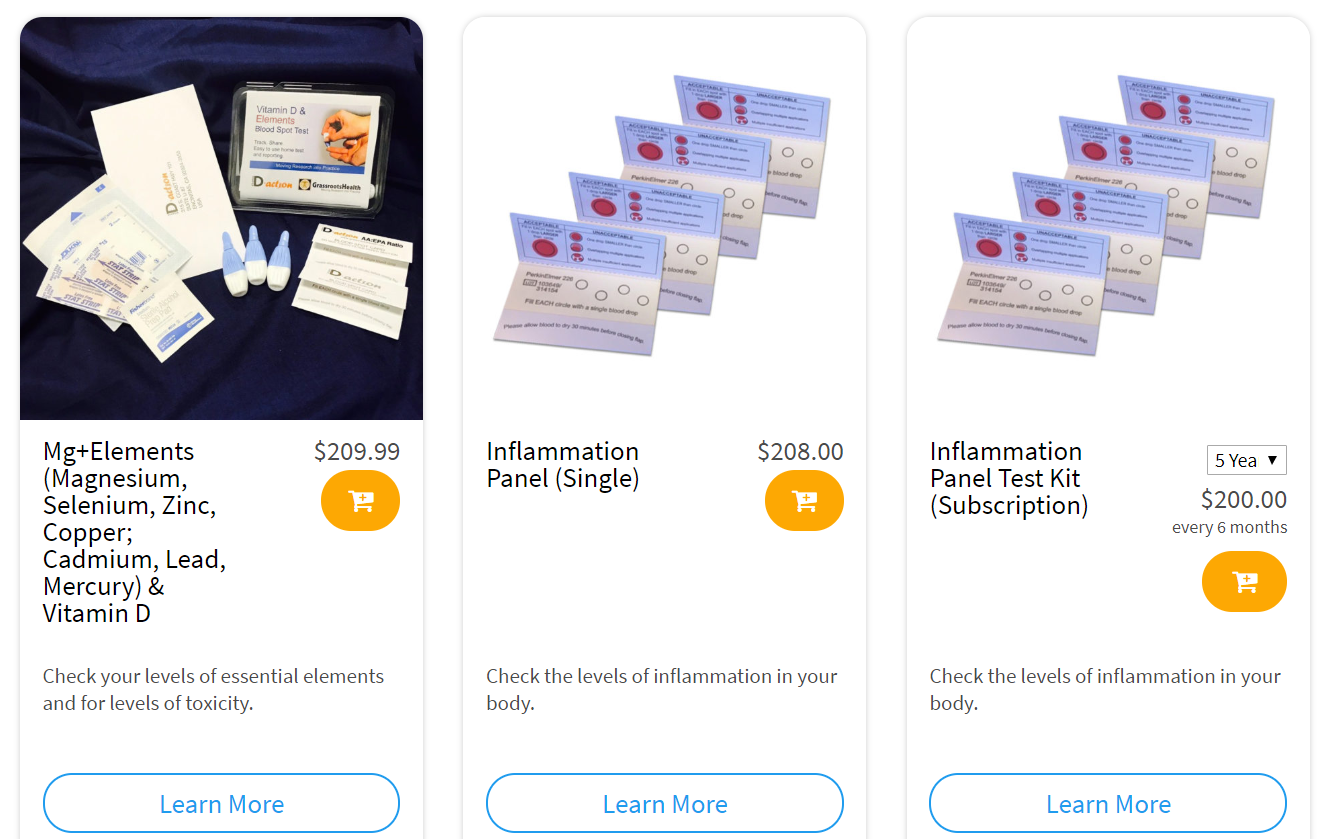Published on September 5, 2019
 Evidence shows that vitamin D levels are affected by obesity. Using the data you provided for the GrassrootsHealth study, we assessed the effect of BMI on vitamin D dose-response.
Evidence shows that vitamin D levels are affected by obesity. Using the data you provided for the GrassrootsHealth study, we assessed the effect of BMI on vitamin D dose-response.
We found that with increasing BMI, the vitamin D level associated with a given supplement dose was lower. On average, approximately three times more supplemental vitamin D was needed to achieve 40 ng/ml for those with a BMI above 30 compared to those with a BMI at 25 or lower.
This suggests that those with a higher BMI will likely need to take a larger vitamin D supplement dose to achieve their target level.
Are you getting enough vitamin D?
Testing your vitamin D level regularly and taking daily steps to keep it at a target level of 40-60 ng/ml (100-150 nmol/L) is important for all stages of health. Find out your levels today! Log on to the shop (click the link below) to get your tests and see for yourself if your levels can be improved.
Make sure you track your results before and after, about every 6 months!
Click Here to Access the Shop Page
How can I track my nutrient intake and resulting levels?
To help you track your supplement use and nutrient levels, GrassrootsHealth has created an online tracking system called myData-myAnswers. For each specific supplement, you can track what days you take it, how much, and many other details. This will help you know your true supplemental intake and what patterns of use work for you to reach and maintain optimum nutrient levels. Check it out today!








